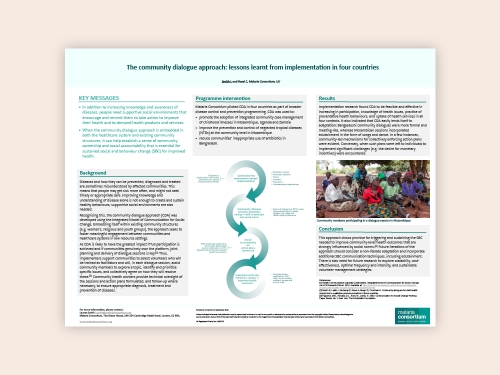
Publication Date:
25/09/2018
Author:
Lauren Smith
Christian Rassi
Type:
Poster

The community dialogue approach: Lessons learnt from implementation in four countries
Publication Date:25/09/2018
Author:
Lauren Smith
Christian Rassi
Type:
Poster
How diseases can be prevented, diagnosed and treated is sometimes misunderstood by affected communities, resulting in people getting sick more often and potentially not seeking timely or appropriate care. Improving knowledge and understanding of diseases alone is not enough to create and sustain healthy behaviours; supportive social environments are also needed.
Recognising this, the community dialogue approach (CDA) was developed using the Integrated Model of Communication for Social Change. Embedding itself within existing community structures (e.g. women’s, religious and youth groups), the approach seeks to foster meaningful engagement between communities and healthcare systems in low resource settings.
This presentation was given at the annual meeting of the RBM Social and Behaviour Change Communications working group in Lusaka, Zambia in September 2018.
Country: Mozambique | Uganda
Keywords: Community delivery | SBC | Research | SDGs
« Back to Publications